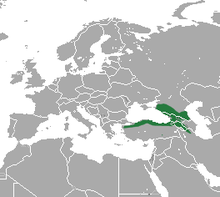
The red-toothed shrews of the subfamily Soricinae are one of three living subfamilies of shrews, along with Crocidurinae and Myosoricinae. In addition, the family contains the extinct subfamilies Limnoecinae, Crocidosoricinae, Allosoricinae and Heterosoricinae. These species are typically found in North America, northern South America, Europe and northern Asia. The enamel of the tips of their teeth is reddish due to iron pigment. The iron deposits serve to harden the enamel and are concentrated in those parts of the teeth most subject to wear.

The smoky shrew is a medium-sized North American shrew found in eastern Canada and the northeastern United States and extends further south along the Appalachian Mountains.

The Eurasian pygmy shrew, often known simply as the pygmy shrew, is a widespread shrew of the northern Palearctic.

The Gansu shrew is a red-toothed shrew found only in a small part of Gansu province and other adjacent areas of China. With its very limited range, it is sensitive to habitat loss and is listed as a "vulnerable species" in the Chinese Red List, while the IUCN lists it as being "data deficient"
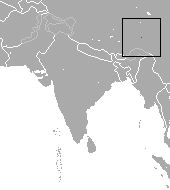
Kozlov's shrew is a red-toothed shrew found only at the Mekong River, Tibet, China. It is listed as a data deficient species.

Baird's shrew is a species of mammal in the family Soricidae. It is endemic to northwest Oregon. Baird's shrew inhabits moist conifer forests.
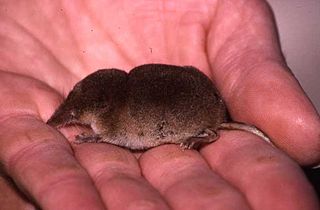
The crowned shrew or Millet's shrew is a species of mammal in the family Soricidae. It is found in Austria, Belgium, France, Germany, Liechtenstein, the Netherlands, Spain, Switzerland, and the British island of Jersey. It is almost indistinguishable from the common shrew, its habitatal preferences and habits are identical. However it has a different karyotype, is slightly smaller, and has small morphological differences, such as a longer rostrum relative to length of skull.

The Chinese highland shrew is a species of shrew in the family Soricidae. It is found in China.

The Azumi shrew is a species of mammal in the family Soricidae. It is endemic to Japan, where it is found in the mountainous regions of central Honshu Island. It is a close relative of the Eurasian least shrew. It is threatened by habitat loss.
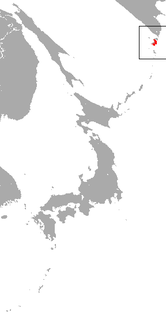
The Paramushir shrew is a species of mammal in the family Soricidae. It is endemic to Russia. Its natural habitat is temperate forests. It is likely named for Paramushir Island, home to several other species of shrew in the genus Sorex.
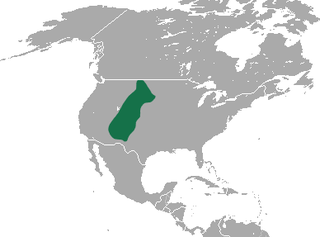
The dwarf shrew is a species of mammal in the family Soricidae endemic to Arizona, Colorado, Montana, Nebraska, New Mexico, South Dakota, Utah, and Wyoming in the United States. The type locality is Estes Park, Colorado, USA.

Portenko's shrew is a species of mammal in the family Soricidae that is endemic to Russia.

Radde's shrew is a species of mammal in the family Soricidae. It is found in Armenia, Azerbaijan, Georgia, Russia, and Turkey.

The Apennine shrew is a species of shrew in the family Soricidae. It is endemic to Italy.

The Caucasian shrew is a species of mammal in the family Soricidae. It is found in Armenia, Russia and Turkey.
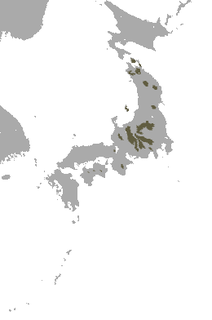
The Shinto shrew is a species of shrew of the genus Sorex that lives only on the islands of Japan. It is a mole-like mammal with a pointed snout, very small ears, and a relatively long tail. Like most shrews, it is tiny, has poor eyesight, and a very good sense of hearing and smell which it uses to locate its prey, mainly insects.

The Chinese shrew or dusky shrew is a species of mammal in the family Soricidae. It is endemic to China, where it occurs in Gansu, Sichuan, and Shaanxi. Its natural habitat is subtropical or tropical dry forest.

The Inyo shrew is a species of shrew found in the western United States. Not much is known about its behavioral and reproductive habits. It is small, very similar in appearance to the related dwarf shrew, but smaller and paler. It can be found in many different habitats, from rocky, mountainous regions to wetlands and riparian areas. While barely studied, their population is believed to be stable and not under any threat.

